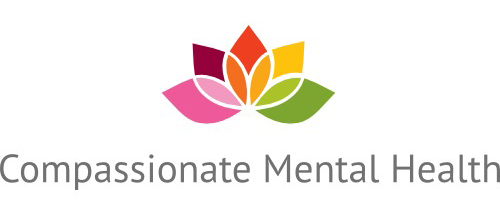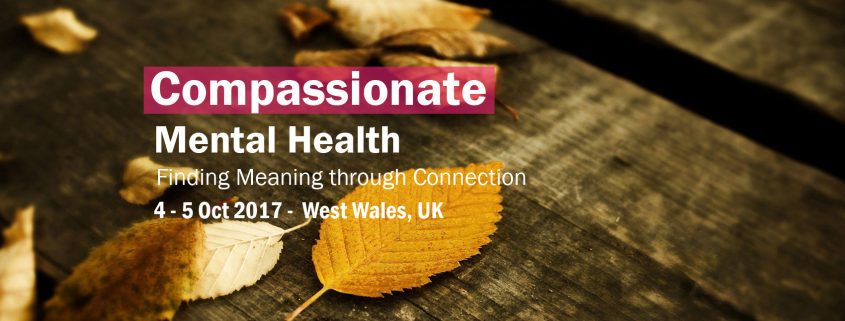Does a Psychiatric Diagnosis Have the Impact of a Medical Curse? by Michael Cornwall, PhD
Over the last 40 years as a dissident therapist and activist, I’ve known many people who were so negatively impacted by their subjective experience of receiving and indefinitely enduring a psychiatric diagnosis that I’ve come to see such dehumanising labeling as the infliction of what amounts to a medical curse.
A curse is defined as: “A solemn utterance intended to invoke a supernatural power to inflict harm or punishment to someone.” Of course, mental health professionals don’t intend harm when they solemnly proclaim from their position of medical authority that a person has a lifelong psychiatric disorder/disease, as is defined in the psychiatric disease model of human emotional suffering and is codified in the DSM. But over and over I’ve seen the aftermath of that powerful ritual of receiving and internalising a lifelong, pathologising diagnosis.
Such disease model labels don’t consider how personal losses, unmet needs, isolation, traumas and social toxicity impact our lives in painful ways.
Carrying a Heavy Weight
Many people struggle for decades or actually succumb and take their own lives because of the emotional pain and corrosive weight of their experience of being so unequivocally labeled. Their psychiatric label is objectively and powerfully reinforced by the injurious psychiatric treatments that accompany and always follow the officially decreed label.
Again, even the harmful treatments are always given with the expression of benevolent if not benign intention. But every hospitalisation, clinic appointment and prescription written and handed over for psychiatric medications is an objective, real-time verifier and reinforcer of the indelible “fact” of the validity of the diagnostic label that must be maintained for the very necessary medical “treatment” to be continued.
In my MIA article “Does the Psychiatric Diagnosis Process Qualify as a Degradation Ceremony?” I outline the social dynamics that allow medical ritual specialists in our society to be invested with the power to permanently redefine the personhood of the identified “mental patient” that they assess, diagnosis and treat.
In that diagnostic/degradation ritual scenario, I believe an ancient human subjective experience occurs that does have the elements of the diagnosed person becoming the recipient of what can only be described as a curse.
The Power of Spoken Words
A few years ago, a good friend, now in her eighties, who was struggling to start writing a book about her life that she’d been wanting to write for decades, told me that when she was a young patient in a psychiatric hospital, she had told her psychiatrist that she wanted to write a book about her life. Her psychiatrist told her: “The idea you’re having about writing a book someday is a grandiose delusion, it’s a symptom of your mental illness!”
My friend asked me, “Do you think her saying that so long ago is possibly still holding me back, Michael? I remember that awful sinking feeling of hearing her tell me it was only a grandiose delusion of my illness every time I’ve started to write my book, and it always seems to somehow make me quit trying to write it.”
I replied, “She cursed you.”
My friend’s eyes got big and her jaw dropped as she asked, “What did you say?”
“I said she cursed you. I believe she gave you what amounts to a medical curse from her position on high of power over you, and from her total belief that only she knew the truth about your capabilities. She believed you must be grandiose, given how she saw you as forever being impaired and mentally ill because of the diagnosis she’d given you.”
My friend then softly cried as she shook her head and said again and again, “She did curse me. She really did curse me.”
And finally she vehemently said, “I’m going to write that damn book now if it’s the last thing I ever do!”
Mixing messages of Care and Control
I don’t think we can underestimate the uncanny power of receiving such proclamations about our personhood by people sanctioned by our culture to serve as arbiters of truth, much like the priestly power of their predecessors who roundly cursed those who they believed deserved such consequences.
Part of the distortion, confusion and mystification of experience that RD Laing described, that happens when we are caught in a bind by receiving two contradictory mega messages about ourselves from others, helps to create the murky aura of a medical curse when we are labeled.
This untenable double bind takes place when in essence we are told, with kindness: “I am a medical professional that only has your best interest at heart, just like all the many doctors, nurses, and healthcare staff you’ve been helped by since you were a baby and small child. Based on my training and the best medical science today, you need to recognize that you are now diagnosed to have a major mental illness or psychiatric disorder of mainly, genetic, biological and neurological causes.
When we hospitalise you against your will, force powerful drug injections into your body against your will as you are immobilised by several leather restraints, it’s always for your own good. Your anger, fear, and sadness that you express in response to us doing these necessary things to you are symptomatic, emotionally defiant expressions of your mental illness that we’re doing our best to treat, just like we’d treat someone who has diabetes or some other illness or disease.
In other words, the mixed message says:
“We care about you even when we hurt you and you can’t accept that yet because of your illness that requires us to keep hurting you indefinitely as we continuously care about you.”
More than the Label you Gave Me
I think it’s human nature to get regressed and feel very vulnerable when we’re frightened and isolated, and that the quasi parental figures that doctors, nurses and other mental health staff become to us in our hours of need contributes to us taking their words about us to heart.
But that internalising process can destroy us too. Because they are wrong about what is causing and has caused our emotional suffering.
They don’t know they are wrong, so they come on like professional caregivers only wanting what’s best for us because they believe they know what’s best for us. Tragically, their grossly untrue views about us, that they impose on us, can become as destructively powerful as if they have cursed us.
It would be much better, because we could then understand it, if the medical curse was given with them snarling in fury and condemnation rather than being given from their placid, professional faces — faces that often, unbeknownst to themselves and usually not known to us, are expressing friendly fascism.
In memory of dear Matt Stevenson, MIA blogger and heart-filled comrade.
……………………………………
This blog was originally published on Mad In America. It was written in memory of Matt Stevenson – a campaigner and activist who tirelessly called for mental illness to be reframed as more than just a lifelong brain disorder. While psychiatric diagnsoses can be important for many, at Compassionate Mental Health we believe it’s vital to change the conversation and move beyond labels for life in order to fully engage with roots of our mental distress.
We join with our friends at Drop the Disorder to create spaces where people can have these conversations safely and openly.
Book to join us at by the firepit on October 4th / 5th at Compassionate Mental Heath – Finding Meaning through Connection in West Wales, to explore ways to create a more compassionate approach.




Leave a Reply
Want to join the discussion?Feel free to contribute!